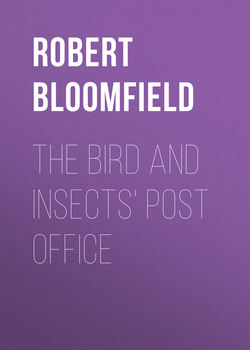Читать книгу The Bird and Insects' Post Office - Robert Bloomfield - Страница 6
LETTER IV.
FROM A YOUNG NIGHTINGALE TO A WREN
ОглавлениеDated "Home Wood."
Neighbour,
When we last met you seemed very lively and agreeable, but you asked an abundance of questions, and particularly wanted to know whether we nightingales really do, as is said of us, cross the great water every year, and return in the spring to sing in your English groves. Now, as I am but young, I must be modest, and not prate about what I cannot as yet understand. I must say, nevertheless, that I never heard my parents talk of any particular long journey which they had performed to reach this country, or that they should return, and take me and the rest of the family with them, at this particular time or season. I know this, that I never saw my parents fly further at one flight than from one side of a field to another or from one grove to the next. Who are they who call us "birds of passage"?2 They certainly may know more of the extent of the Great Waters than we can, neighbour Wren; but have they considered our powers, and the probability of what they assert? I am sure, if my parents should call on me to go with them, I shall be flurried out of my life. But it is my business to obey. I have so lately got my feathers, that I cannot be a proper judge of the matter. As to the swallows and many other birds going to a vast distance, there is no wonder in that, if you look at their wings; but how would you, for instance, perform such a journey – you who, even when you sing, put yourself into a violent passion, as if you had not a minute to live? We nightingales are the birds for song. This you will acknowledge, I dare say, though I have not begun yet. I will give you a specimen when I come back (if I am really to go), and you will hear me in "Home Wood
2
Cowper, that excellent man and poet, and close observer of nature, writes as follows to his friend, on the 11th of March, 1792: —
"TO JOHN JOHNSON, ESQ
"You talk of primroses that you pulled on Candlemas Day, but what think you of me, who heard a nightingale on New Year's Day? Perhaps I am the only man in England who can boast of such good fortune. Good indeed! for if was at all an omen, it could not be an unfavourable one. The winter, however, is now making himself amends, and seems the more peevish for having been encroached on at so undue a season. Nothing less than a large slice out of the spring will satisfy him."
He adds the following lines on the occasion: —
"TO THE NIGHTINGALE, WHICH THE AUTHOR HEARD SING ONNEW YEAR'S DAY, 1792
"Whence is it that amazed I hear
From yonder wither'd spray,
This foremost morn of all the year,
The melody of May?
"And why, since thousands would be proud
Of such a favour shown,
Am I selected from the crowd,
To witness it alone?
"Sing'st thou, sweet Philomel, to me,
For that I also long
Have practised in the groves like thee,
Though not like thee in song?
"Or, sing'st thou rather under force
Of some divine command,
Commissioned to presage a course
Of happier days at hand?
"Thrice welcome then! for many a long
And joyless year have I,
As thou to-day, put forth my song
Beneath a wintry sky.
"But thee no wintry skies can harm,
Who only need'st to sing
To make e'en January charm,
And every season spring.
R.B."
